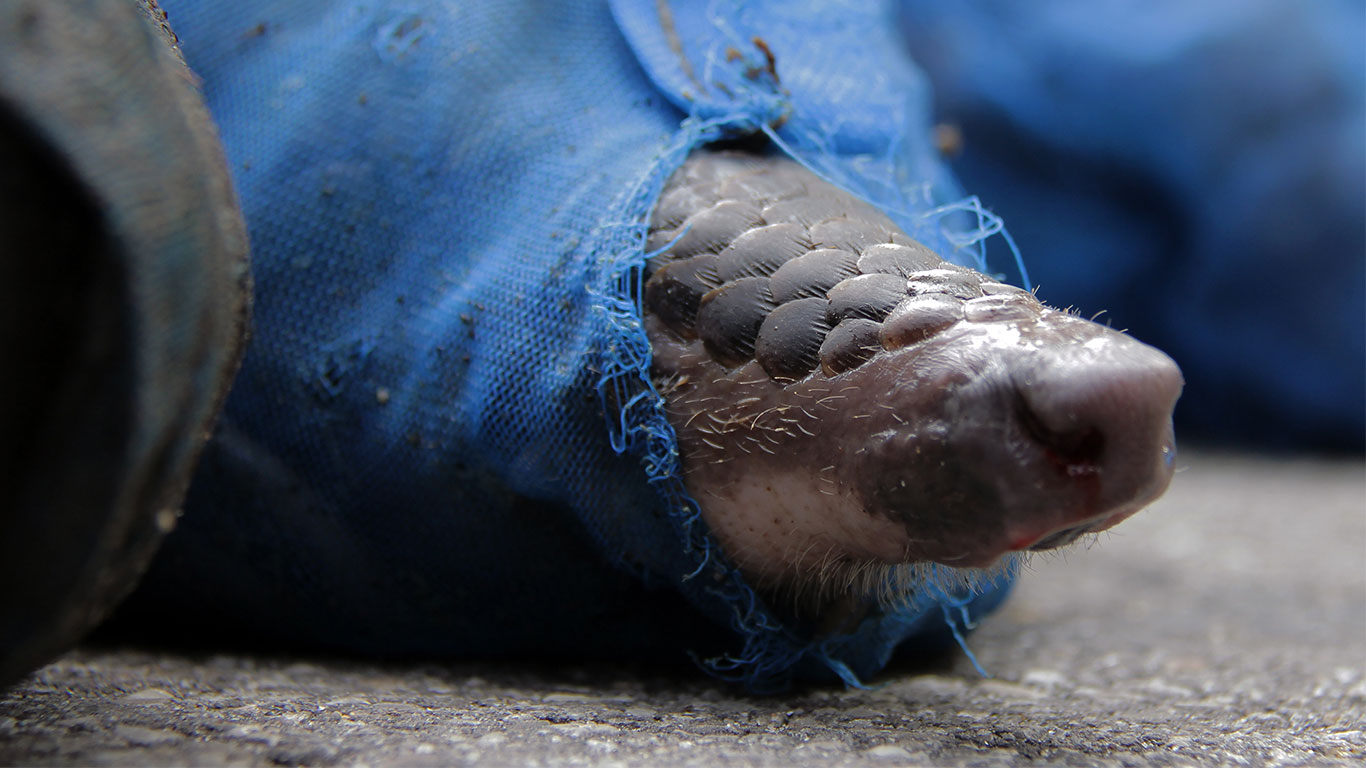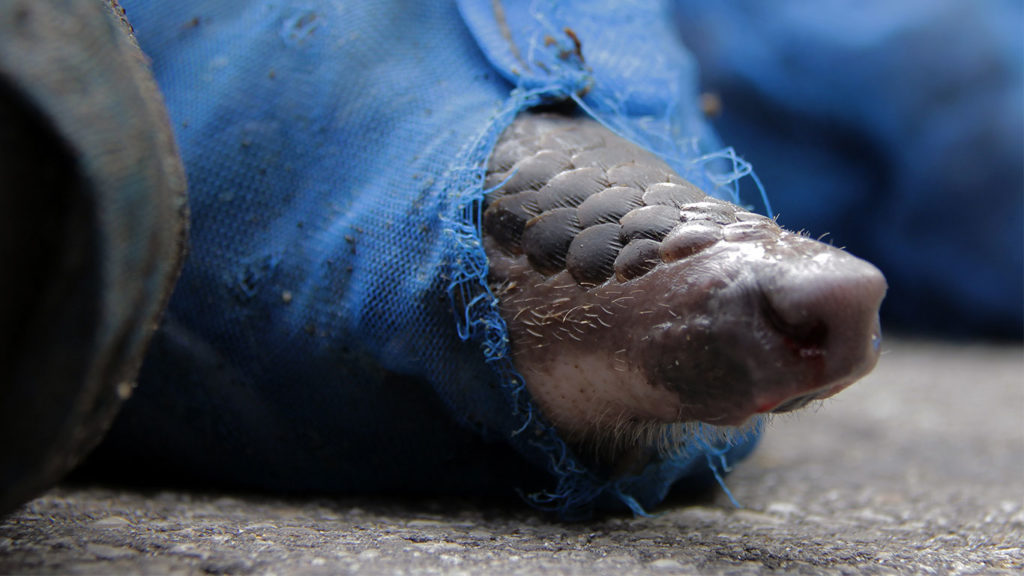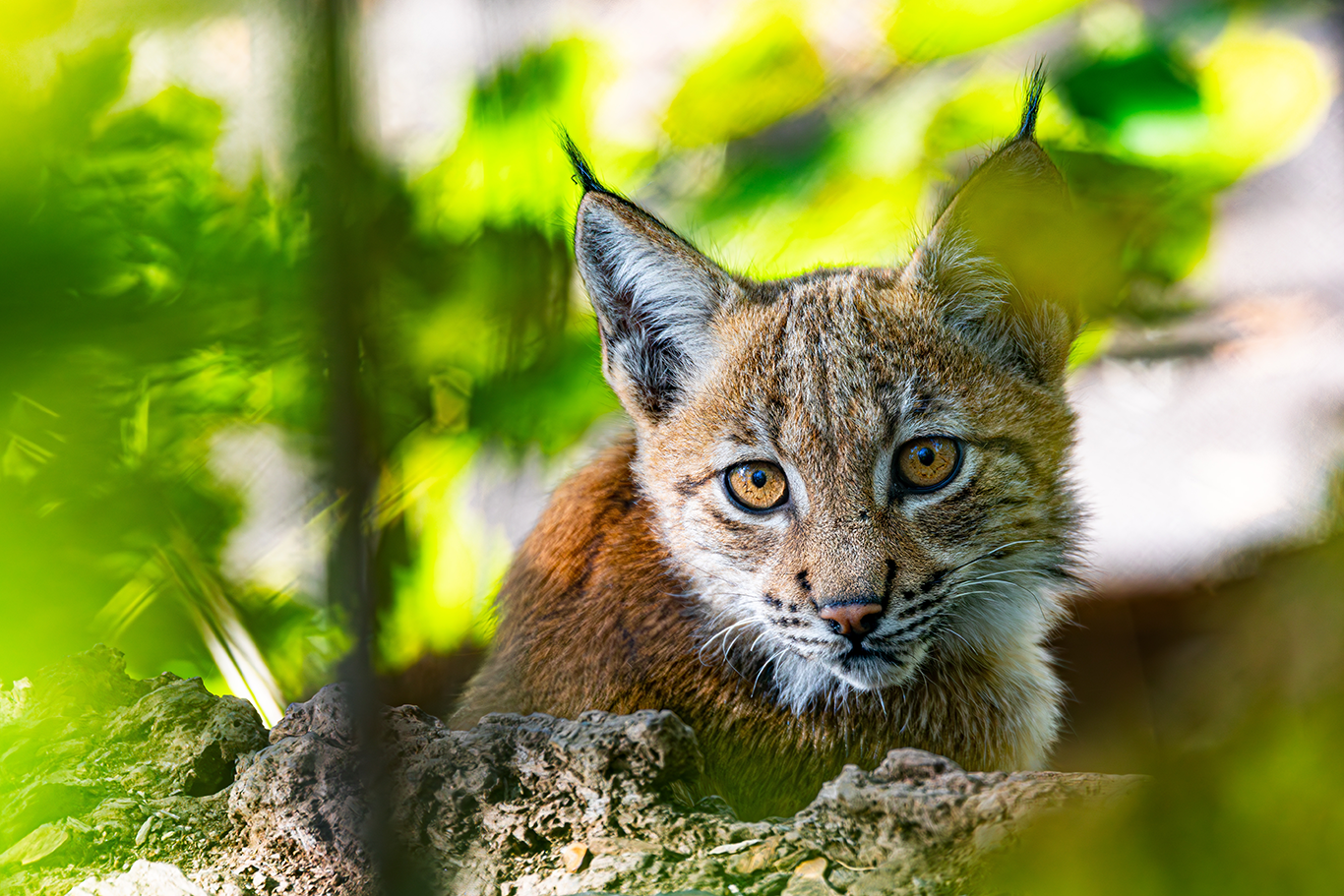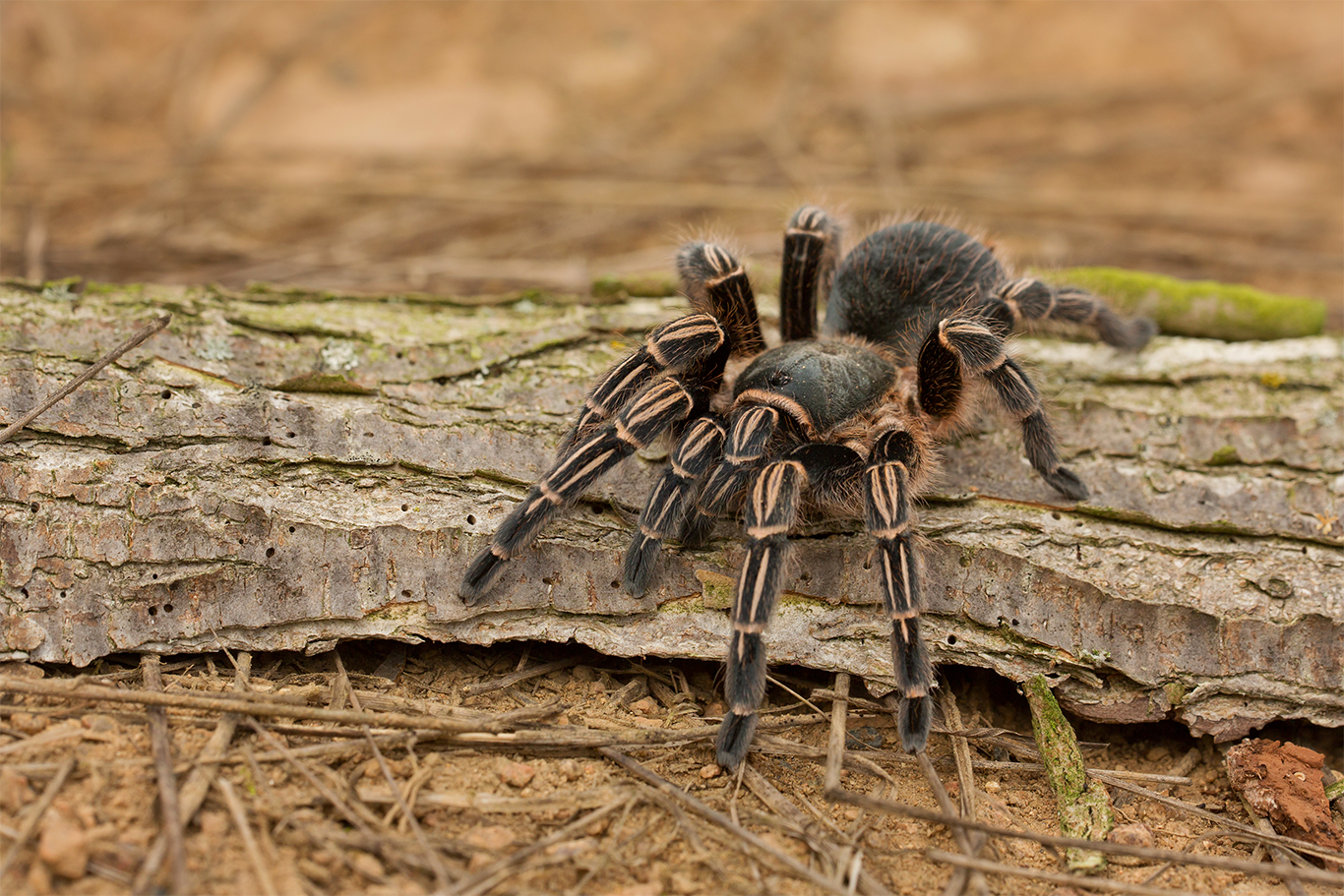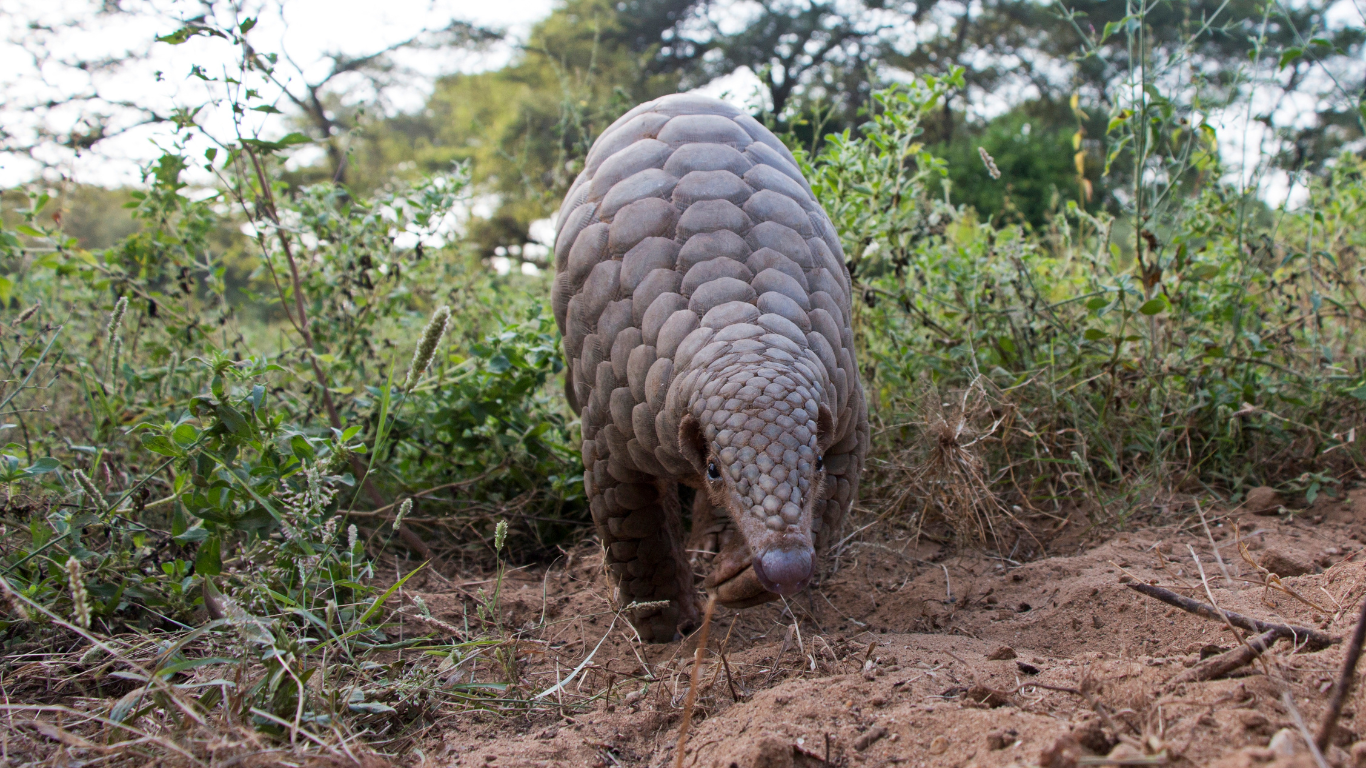By Melissa Reitz
When COVID-19 broke out in Africa, it was hoped that travel restrictions and border closures would go some way to limiting the illegal wildlife trade from Central Africa to Asian countries. It did not happen.
A recent spike in poaching and arrests confirms the demand for wildlife animal parts from Central African countries such as Uganda and Democratic Republic of the Congo (DROC) is showing no signs of diminishing. Illegal trade in traditional wildlife products, such as pangolin scales and tortoises as well as new ones, such as elephant penises, has continued throughout the pandemic.
High value rhino horn and ivory are airlifted as cargo, while other products such as fish, python skins and hippopotamus teeth are shipped out of Uganda through ports on Lake Victoria. These animal parts are then transported through Kenya and on to destinations in Asia
COVID-19 lockdown measures mean reduced staff at ports and borders, making these transit points porous and more susceptible to illicit trade. With Uganda’s cargo services still open, the country can continue acting as both supplier and an important transit hub for illegal wildlife trade from Central Africa. This is in spite of international passenger travel being banned until October 2021. According to wildlife trafficking experts, paying attention to countries such as Uganda that act as midpoints in the supply chain of international illegal wildlife trade is critical to stopping global wildlife trafficking. Scientists and health experts say that it is unregulated movement of wild animal parts that give rise to zoonotic diseases like COVID-19.
It's believed that coronavirus may have first emerged at a 'wet market' in the city of Wuhan in China. Wet markets sell a variety of animals, both domestic and wild, for food consumption. Researchers say coronavirus is likely to have originated from a bat and then been passed onto other animals such as the pangolin.
With the outbreak of the pandemic, many of China's wet markets were shut down and the trade and consumption of wild animals for food banned. But the commercial sale of wild animals for pets, traditional medicines, or ornamental uses is still legal.
The World Health Organization (WHO) stresses the importance of enforcing bans on the sale of wildlife for food which the environmental and policy community have echoed.
“It’s imperative that international communities work together to support a movement toward a total ban in illegal international wildlife trade in all its forms, including consumption, medicine and pets. This is the only way we can disrupt this prolific and ongoing slaughter of Africa’s wildlife,” says Adrienne West, chief campaigner at Animal Survival International (formerly Political Animal Lobby).

